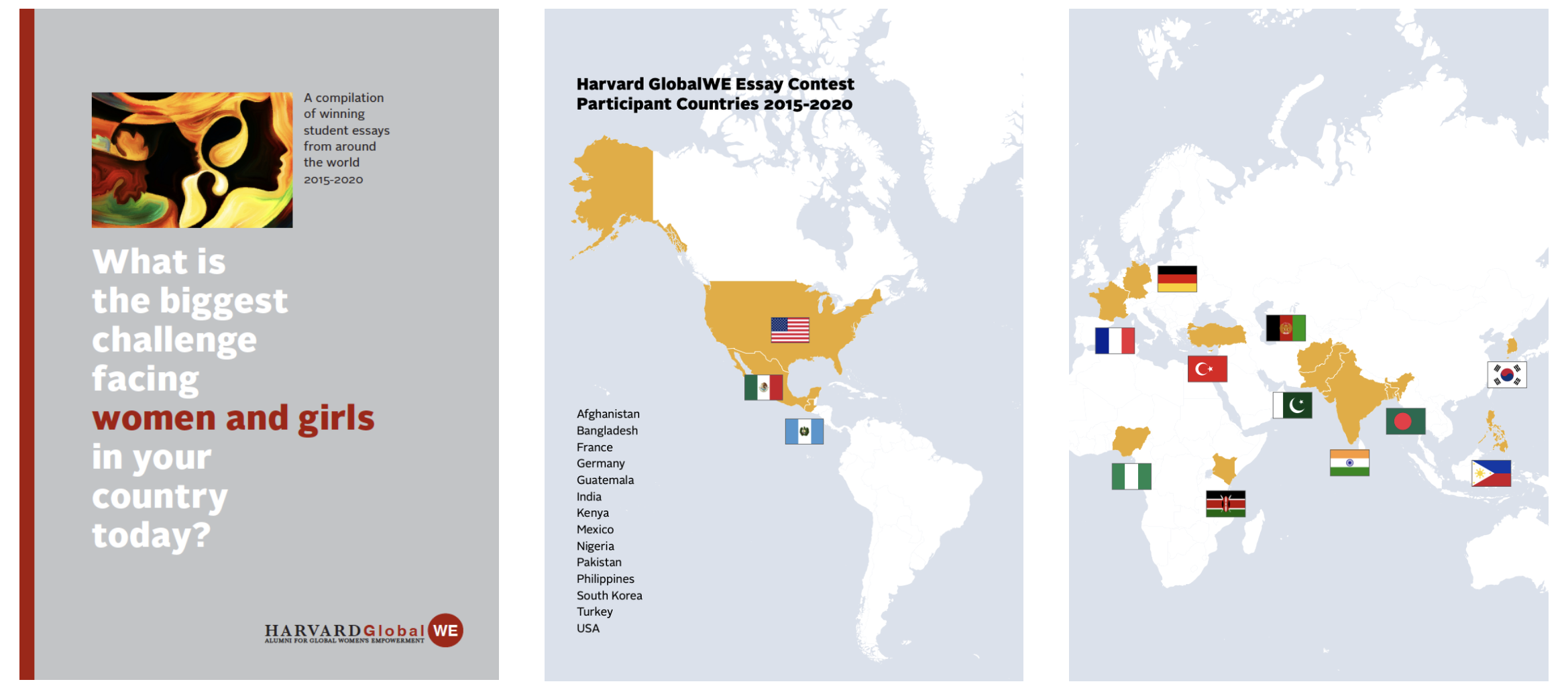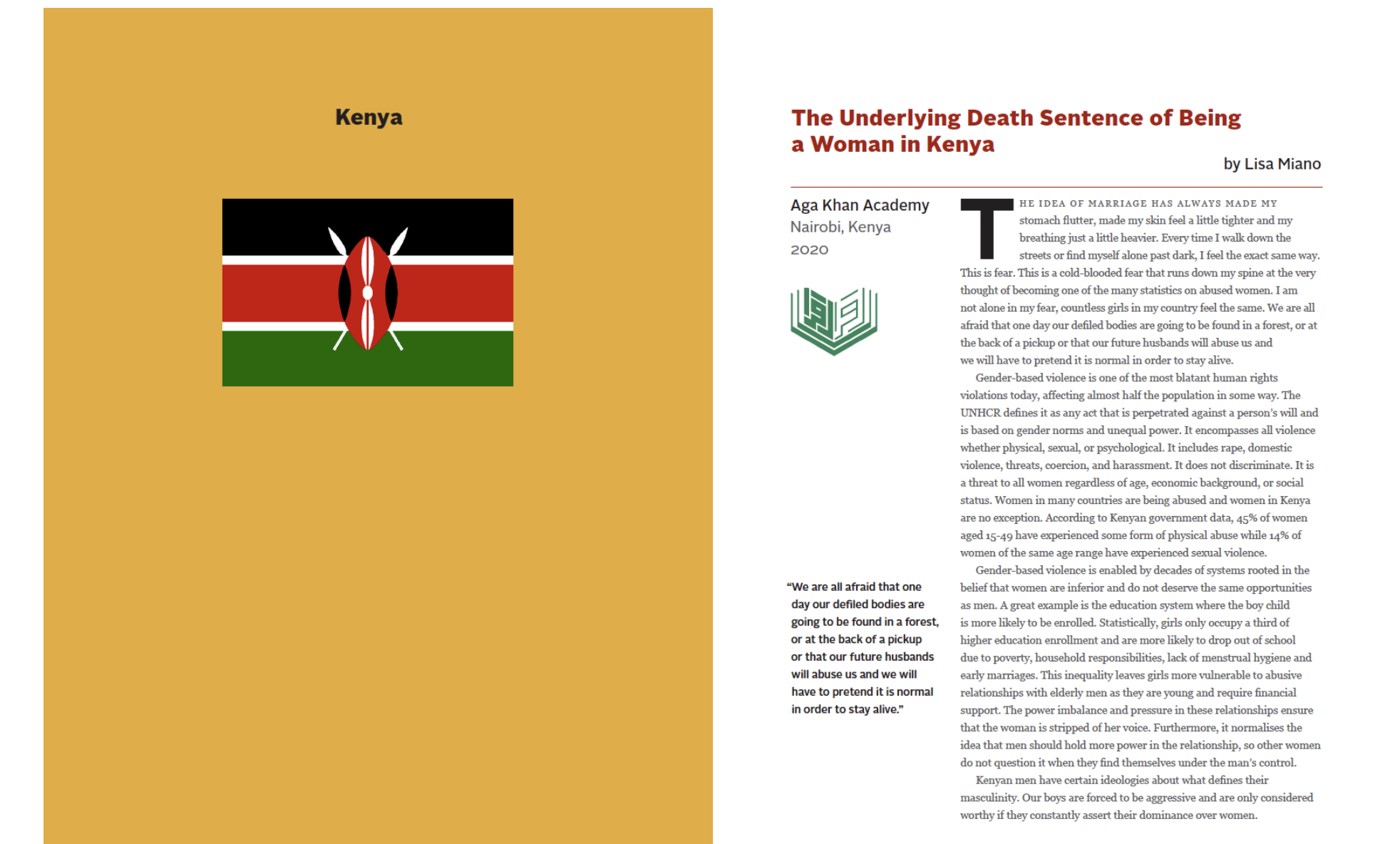The door groans upon hearing his heavy footsteps returning from work, the chair jumps hearing him yell his wife’s name, the clock winces as it watches his hand delivering a sharp blow to his wife’s face, but she does not groan, jump or wince. She stands there, lifeless; just like the door, the chair and the clock, staring into space with her eyes that were once filled with love and hope. After all, she was just a pawn in the game. She is one of countless women in my hometown, a small town in southern India that I visit yearly, a town with a small library that closes every Wednesday, a lake with fishes the size of my palm and a town where some of the strongest women I know live. It is nearly impossible to go against something that you have been taught is normal your whole life. These women grew up seeing other women in their lives go through the same experiences as them so often, that they are unfazed when they face the same signs of domestic abuse. Whenever I hold a conversation with them, I never fail to notice how their voice gets a tiny bit softer, a tiny bit sadder when talking about their abusers; their very own husbands, men whom they trusted their life with, whom they swore to be with till death does them apart. The worry lines on their forehead, along with the scars in their hearts deepening every year I visit them.
Read More“Huh? Your friend wants to be a nurse? Nurses don’t earn money though… How about being a doctor?”
As a young person in Singapore, this is not an uncommon response to receive when conversing with my relatives about the future. Substitute the word ‘teacher’, ‘social worker’ or ‘therapist’ for ‘nurse’ and one would likely be met with the same answer. Despite the dissatisfaction I might feel with their dismissive attitude toward these forms of care work, I must admit that they aren’t wrong. Care work, defined as ‘the work of caring for others, including unpaid care for family members and friends, as well as paid care for others’, has long been undervalued and overlooked globally, in both economic and social terms. It is no different in my country. The physical, emotional and mental work that goes into care labour has been historically disregarded, ever since caregiving was ‘sentimentalized and naturalized’ and framed as something to be ‘performed for the sake of “love” and “virtue,” as opposed to money’, according to American critical theorist and feminist Nancy Fraser. I see this trivialisation of care labour as the largest challenge facing women and girls in Singapore because of the fact that care work is predominantly carried out by them. If caregiving is not taken up in the public sphere as paid work, then it is probably carried out at home as unpaid labour for the majority of Singaporean women.
Read More

